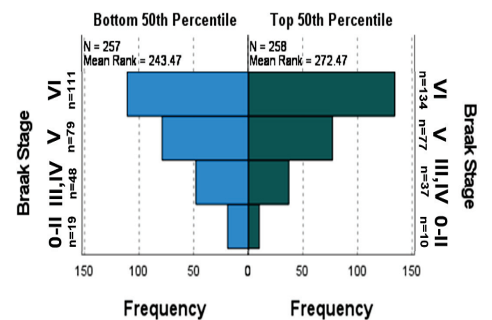Advantages
- The study employs a novel approach by characterizing T-cell receptor (TCR) recombination reads and using a chemical complementarity assessment for the complementarity determining regions (CDR3s) of the TCRs and candidate antigens.
- By investigating the role of TCR CDR3s and their interactions with Tau protein, the research sheds light on the potential contribution of the adaptive immune response to AD pathogenesis.
- The findings suggest correlations between specific physicochemical features of TCR CDR3s and disease progression, as indicated by Braak stages. These associations provide insights into potential biomarkers that could aid in AD risk stratification and monitoring disease progression.
Summary
This research aimed to investigate the role of adaptive immune system in Alzheimer's disease (AD). By analyzing T-cell receptor (TCR) recombination reads from AD patient samples, the inventors were able to provide valuable insights into the immune response and its potential implication for disease progression and personalized risk assessment. They identified correlations between specific physicochemical features of T-cell receptor alpha (TRA) complementarity determining region-3 (CDR3) and AD disease stages, shedding light on potential biomarkers for risk stratification. These findings suggest a potential association between the adaptive immune response and the pathological hallmarks of AD, such as β-amyloid and Tau proteins. This research holds promising implications for the development of novel disease-modifying strategies and personalized therapies.
1. 2.
2. 
1. Violin Plot correlating higher Braak stage (worse clinical outcome) with higher isoelectric points in brain derived TRA CDR3s. (Kruskall-Willis p-value: 0.044)
2. Dual histogram correlating higher Braak stage with higher hydropathy complementarity score for blood TRA CDR3s and Tau segment 5 (p = 0.017)
Desired Partnerships:
- License
- Sponsored Research
- Co-Development